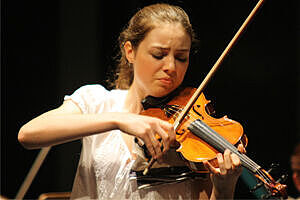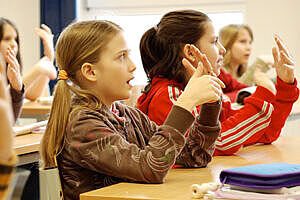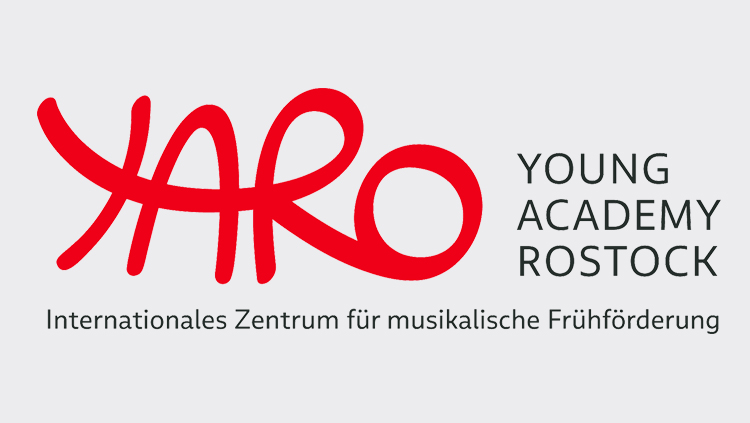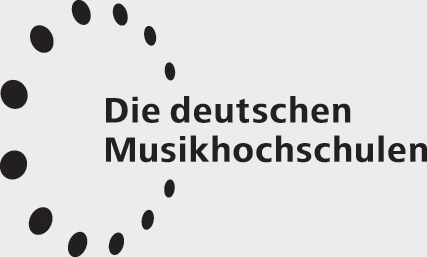Master's degree Music Education
Programme details
During their studies, students continue their instrumental or vocal training via the Major Specialism Module. Pedagogical training is at the centre of the Key Module. The Applied Music Theory and Musicology module provides students with the relevant skills for a career at music schools or in the freelance profession.
The focus is on practice-orientated training, which should enable students to give well-founded and contemporary lessons, primarily in various forms of teaching at music schools. This applies to individual and group lessons in instrumental and vocal subjects as well as to courses in elementary music practice and co-operation projects with general education schools.
The content of the Master's in Instrumental and Vocal Pedagogy is geared towards the needs of lively teaching practice and includes the analysis and interpretation of music at different levels as well as arranging. Teaching and learning are considered from the perspectives of current developments in music education and are deepened in subject didactics and teaching practice under special aspects of the respective main subject in theory and practice. A mentored music school internship provides impressions from observations and gives students the opportunity to reflect on their own teaching experiments.
A series of subjects from the field of elementary music education, its music education concepts and their realisation with different target groups form a special focus. An introduction to ensemble conducting provides practical relevance, while theoretical background to teaching is taught in the subject of social and group psychology.
Curriculum (German)
Course Profile
- Official length of the programme: two years, 120 ECTS-credits
- Start of the courses: in the winter semester only
- Application period: 1 March to 15 April for the start in the winter semester
- University Degree: Master of Music
- Teachers
Graduates should be qualified to teach instrumental/vocal lessons according to modern methods and in various forms (private tuition, group tuition and kinds of primary training in music). The main focus is on an adequate connection between theory and practice. Based on theoretic knowledge, graduates are able to develop their own method of teaching that is founded on pedagogical and psychological research. Moreover, graduates are well prepared to use methods that enable them to reflect on their own teaching and to adjust to the increasing and changing requirements of their future jobs.
Foreign students whose native language is not German must provide evidence that their knowledge of German is sufficient for their chosen course.
For the Master in Music Education, students are required to have reached level B2 as defined by the Common European Framework of Reference for Languages.
Applicants’ linguistic competence will be established during the aptitude test.
You will find further information in the Aptitude Test Regulations and Matriculation Regulations (only in German) of Rostock University of Music and Drama.
ATTENTION: There will be no aptitude test for the trumpet major in the winter semester 2025/26.
Please apply via our application website by uploading the required documents and application video by 15th of April for the next winter semester.
Please submit a 20-minute video for the first part of the aptitude test. The video should include works from different characters, epochs, and styles that correspond to the level of a Bachelor's final examination. The video has to start with a short introduction (your name, your application number, the title of the piece you are about to present). The video has to be filmed in one take and live, which means the material must not be cut or post-edited. There is no need for professional video production. Videos taken with your mobile phone are absolutely fine. However, you should be clearly visible and audible whilst playing your instrume Ideally, the camera perspective should show the whole person from the front, or at least the face and hands. You will receive the result of the aptitude test via the application portal. To be invited to part 2 of the aptitude test, you must pass the digital round. The second part of the aptitude test will take place on-site in June. The exact times for the aptitude test can be found under apply for studies.
The requirements for part 2 of the test include
- a practical examination where you will present the works from part 1.
- Additionally, you will be asked to explain your career prospects and previous experience in instrumental and vocal pedagogy.
- Finally, you will be required to complete a written examination to demonstrate your understanding of texts and ability to reflect on music education issues.
Additionally, foreign students have to pass a German proficiency test.
We look forward to your application.
Application
Click here for the ONLINE APPLICATION and the dates of the APTITUDE TEST.
A fee of 50 Euro is charged for processing your application for admission. Please transfer this amount when you submit your application.
We will gladly advise you personally!
Mrs Dörtje Peters
Study Office for Music
fon +49 381 5108 220
fax +49 381 5108 201
doertje.peters@hmt-rostock.de
Prof. Dr. Silke Lehmann, Head of Music Education
silke.lehmannhmt-rostockde
Please visit our University Information Day in April!
Back to DEGREE COURSES







